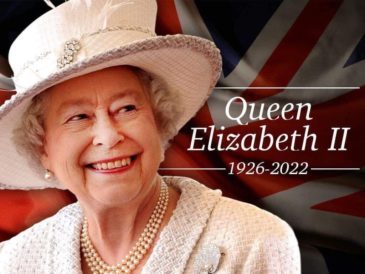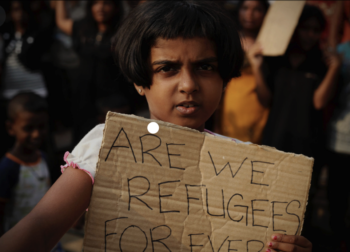The World Council of Churches Assembly concluded on September 8th 2022, and issued a Draft Unity Statement (First Revision). Definitely worth a read and further consideration. Maybe church leaders and Interchurch Councils/Combined Churches can work their way through the statement and reflect upon it? Maybe shape some content for input for a sermon on World Communion Sunday (October 2)?
Some excerpts…
Para 15…There is a move amongst some to emphasize the experience of ecumenism more than formal agreements and a recognition that as we first walk together on our common pilgrimage of reconciliation and unity, we are then also led to reflect together on questions of faith and truth. The churches’ responses reveal a longing for an ecumenism in which we bring all of ourselves to the journey and to the table, not separating thought from prayer, prayer from action, or action from thought.
Para 18. The work of unity needs to be inspired anew by the love we have seen in Jesus Christ. It needs to begin with the love of the heart, the love that responds to Christ who said, “I give you a new commandment, that you love one another. Just as I have loved you, you also should love one another” (John 13:34). The love of Christ is the spiritual source of the ecumenical movement. It moves us to walk together, compels us to pray together, and urges us to respond to Christ’s invitation to be of one spirit and one mind. The quality of the relationships between us and our churches will inspire our journey and our common work towards that full visible communion for which Christ prayed (John 17:20-23).
Para 19. It is when we are kind to one another as churches, warmly welcoming of each other, building profound and evident friendship in sincerity and respect, when we are drawn to one another out of compassion, fascination, and longing for one another – across our differences and divisions – that we will find the grace to search for that common faith, the truth together held that will overcome our separation. Unity in apostolic faith, in sacramental life, in ministry, and in the work of sharing in common action together, all need our heads, hands, and feet, the whole of us, to be fully engaged (1 Cor. 12). But the vital search for agreement in faith, the working together in service to the world, the walking the way of discipleship together; all these are stirred by the love of Christ, who moves our hearts through the Holy Spirit.
Para 20. The search for unity that is inspired by love and rooted in deep and mutual relationship may be termed an “ecumenism of the heart.” It is Christlike love that moves us to walk honestly and wholeheartedly beside one another, to try to see the world through the eyes of others and to have compassion for one another, to build the trust that is such a vital part of our ecumenical journey. It is love that will reject any distorted kind of unity that overcomes, overpowers, or coerces the other, and neither will it settle for a weak type of encounter that is merely formal. This love goes beyond every level of restriction and restraint; it is not abstract, sentimental, soft, or romantic, but is embodied and whole, witnessed in the visible and the practical, in the passionate and the truly challenging, able to address the deepest evil and injustice.
Para 22. An ecumenism of the heart springs from an experience of the love of Christ stirring in us the metanoia that purifies our hearts, minds, and wills so that we are able truly to embrace one another. This love can also make us witnesses to love in the world. The churches, the nations, the communities of our world today, and the whole of creation are groaning and crying out in pain, and it is the very love of God working within us that opens our ears and hearts to their cries. We have been walking together on the way towards visible unity, and we have learned, even on our bumpy pilgrimage, that only the love of God can get us moving together to enter faithfully into God’s new future. Churches committed to growing in communion with one another, to true love for one another across even profound differences, will live in ways that are deeply counter-cultural in today’s world.
Para 23. Let us pray that we will never seek to divide or conquer, to exploit or humiliate, to overwhelm by violence or enforce unity; nor to collude any more with the inequalities of the world. Let us not be tempted by politics that is shaped by deepened individualism, dangerous nationalism or increasing militarism; or accept as inevitable the systemic inequalities that divide the world; or suffer without resistance the dominance and dangers of consumerism and of those technologies that alienate us from one another or that damage our God-given humanity. Out of love, we commit ourselves to build a world for the common good, for all humankind. We long for the kind of communion that celebrates and affirms the dignity of all people and honours the whole living earth as the work of God the Creator. Together in Christ, formed in Christ’s image, walking the way of love, and in repentance, we celebrate unity as both gift and virtue, knowing that we are called to bear witness to communion in a world that too often creates and exacerbates division. In a world of separation, inequality and injustice, Christ calls his followers to witness to the unifying power of the love that is a gift of the Spirit. This provokes a strong challenge in the world and sounds a call to an alternative order, one moving towards unity and reconciliation of all humankind and of the whole creation.
A prayer
Holy God, source and creator of all things, eternal love, we give thanks to you:
Father, who loves us infinitely,
Son who reveals to us unconditional love, Holy Spirit who empowers us with divine love, gather us together in your love,
that we may grow in visible communion
and so witness to unity in the world.
Where your people are broken, may love mend.
When hatred shouts in the world, let love bring peace with justice. As creation groans, may redemption come to all the earth.
Come with your divine love, and enter our hearts.
Move your church, and move the world
to reconciliation and unity. Amen.







